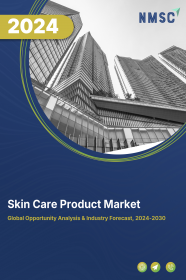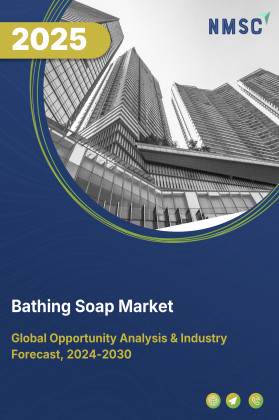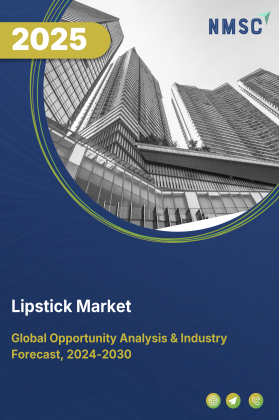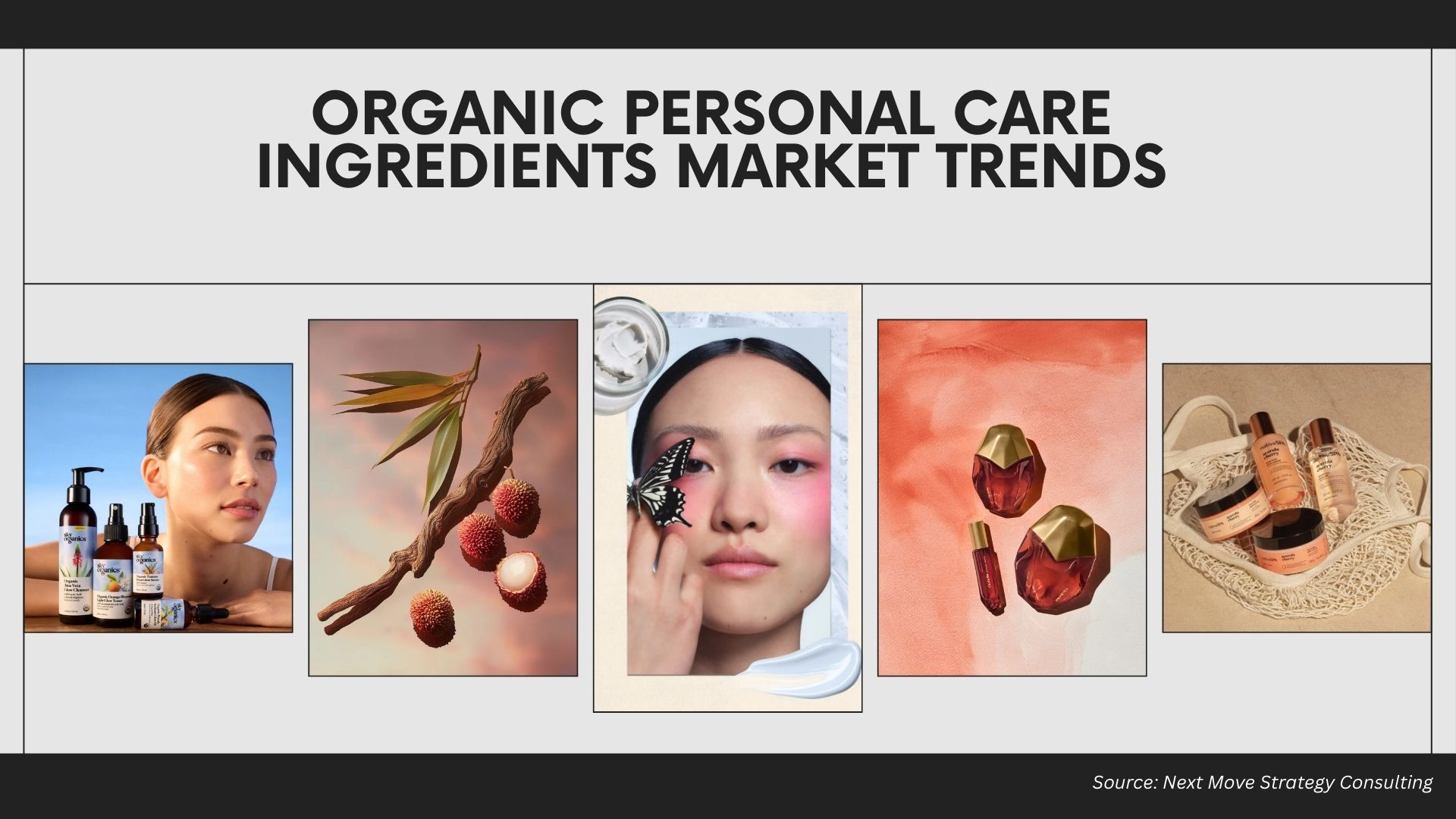
Skin Care Products Market by Products (Face Care, Body Care, and Baby Care), by Ingredients (Chemical and Organic), by Packaging Material (Plastic, Glass, Metal, and Others), by Gender (Male and Female), by Category (Affordable Skin Care and Premium Skin Care), and by Distribution Channel (Convenience Stores, Specialist Retail Stores, Hypermarkets/Supermarkets, Online Channels, and Pharmacies/Drug Stores) – Global Opportunity Analysis and Industry Forecast, 2023–2030
Industry: Retail and Consumer | Publish Date: 29-Nov-2024 | No of Pages: 513 | No. of Tables: 412 | No. of Figures: 361 | Format: PDF | Report Code : RC378
Market Overview
The global Skin Care Products Market size was valued at USD 145.68 billion in 2022, and is predicted to reach USD 248.17 billion by 2030, with a CAGR of 6.03% from 2023 to 2030. Skin care encompasses a wide range of practices that protect the skin's integrity, improve its look, and treat skin diseases. They include good nutrition, preventing excessive exposure to the sun and enabling appropriate use of emollients.
Skin care is a common everyday practice in many settings, including the treatment of skin conditions such as excessively dry or wet skin, preventing dermatitis, and preventing skin injuries. Skin care products can be purchased to address various skin concerns and needs based on skin types.
Rising Pollution Levels and Surging Occurrence of Skin Disorders Drive the Market Growth
People are more inclined to utilize skin care products as a kind of protection due to the increased pollution levels in cities due to the growth of industries. Skin care products, including skin conditioners and cleansers, can help cleanse and condition the skin while protecting it from pollutants. Also, an over-exposure to pollutants causes the skin to become dull and experience clogged pores, dehydration, redness, and other skin problems.
People are becoming increasingly aware of the adverse effects of pollution on their skin, which shifts their interest and demand toward skin care regimens for boosting their skin health. The skin care lotions and creams offer ultraviolet (UV) protection and guard against sun damage, blemishes, tanning, and hyperpigmentation, thus are popular and widely accepted across the world.
Moreover, pollution has contributed to severe skin damage, including sun spots and wrinkles and loss of moisture. This, in turn, leads to aging. Various ingredients in the anti-pollution skin care solutions, such as antioxidants, ceramides, hyaluronic acid, probiotics, and prebiotics, help boost the skin’s barrier function. These factors are expected to accelerate the growth of the skin care products market.
The Demand for Innovative and Eco-Friendly Products Boost the Market Growth
Consumers are focusing on eco-friendly skin care products that are animal cruelty-free due to the growing awareness associated with animal rights. This led to the shift in consumer preferences towards organic and vegan ingredients that are entirely extracted from plant-based products.
For instance, in February 2021, Gillette introduced Planet KIND, a new shaving and skin care brand for the protection of the skin and the planet. Planet KIND packaging has the recyclable properties, and manufacturing using 85% recycled plastic, 85% recycled paper, and infinitely recyclable aluminium. The company collaborated with Plastic Bank. Every Planet KIND product purchased will stop 10 plastic bottles from entering the ocean. Therefore, large manufacturers operating in the market focus on introducing vegan skin care products to expand their consumer base and increase their revenue. The "Love, Beauty, and Planet" line of skin-nourishing goods from Unilever is vegan-certified and packaged using 100% recycled material.
Moreover, the availability of innovative personalized beauty products based on individual beauty requirements, age, and skin conditions such as acne and eczema is expected to boost the market growth during the forecast period significantly. This is due to changing trends toward personalized skin care products owing to the rising consumer awareness. This, in turn, fuels the market adoption of skin care products.
The High Cost of Skin Care Products and Limited Shelf Life Hinder the Growth
The cost of various organic and natural skin care products is high, which hinders the growth of the market. Moreover, premium pricing of several branded skin care products also leads to the manufacturing of copied products using various chemicals, leading to skin-related problems such as allergies and rashes. These practices are expected to impede the industry growth of skin care products.
Furthermore, the shelf life of most skin care products, including moisturizers, eye creams, face masks, and serums, is between six months and a year. A product will last longer on the shelf if packaged in an airless pump tube rather than a jar. Some products have a greater potential to grow bacteria over time after expiration if used on sensitive skin. It can irritate the skin through an infection, rash, allergy, or acne. This, in turn, is projected to hinder the growth of the skin care products industry throughout the forecast period.
Technological Innovation and The Emergence of AI in Skin Care Industries Create an Opportunity
The introduction of artificial intelligence (AI) in skin care, technological advancements, and increasing customer expenditure in the sector is anticipated to increase the demand for skin care products. With the incorporation of augmented reality (AR) and virtual reality VR), AI, and 3D printing in skin care, the beauty sector is undergoing a rapid revolution.
Moreover, several brands are adopting innovative strategies to pair consumers with dermatology practitioners to get personalized skin care recommendations. Additionally, innovations in procedures, virtual acne diagnosis, and smart mirrors with AR and VR are implemented by various giants to customize their products.
For instance, in October 2022, A.S. Watson, one of the world’s largest international health and beauty retailers, launched the Skinfie Lab. This innovative skin analysis tool creates highly personalized skin care product recommendations based on customers’ selfies. The launch of Skinfie Lab in Asia is the latest development by A.S. Watson to deliver a truly O+O (Offline plus Online) customer experience. These factors are expected to create opportunities for skin care products worldwide.
Asia-Pacific Holds the Dominant Share in the Skin Care Industry
This region is a major market for the personal care and beauty industry. It has recently been a major consumer of beauty products and a source of innovation for the sector. The West has been particularly fascinated with Korean beauty, and more recently, Japanese beauty trends. Additionally, the exponential growth in disposable income levels and the rise in demand for skin care products for working professionals in this region are predicted to boost the market growth.
In addition, an upsurge in the number of women in the workplaces throughout various countries in this region, including Japan, China, Vietnam, and Thailand, is expected to increase the demand for skin care solutions to combat stress and anxiety and the tendency of skin problems.
Furthermore, the e-commerce trend is enhancing online beauty and personal care product sales. As a result, various market players are focusing on online channels. For instance, in May 2021, L'Oréal Paris introduced an omni-channel concept store in collaboration with AKQA in Shanghai to offer visitors a personalized experience and develop a better relationship with customers. Recommended products can be picked up in person, delivered to any address in China, or placed in a digital shopping cart associated with the L'Oréal mini-program user's account for subsequent purchases.
The Rest of the World Segment Is Expected to Show a Steady Rise in the Skin Care Products Market
Owing to the growing prevalence of skin conditions such as acne, eczema, and rosacea, there is an increased demand for treatments offered by skin care products. Also, the growing women workforce across the region is becoming aware of the skin-related problems. According to the World Bank, the total participation rate of female labor force participation rate in South Africa accounts for 45.7% in 2021. The awareness of such large workforce propels the market growth.
Moreover, the expansion of local companies across various other countries in this region offer valuable and cost-effective products to population. This, in turn, drives the growth of the skin care products market. For instance, in December 2022, Uncover Skin Care Ltd. of Kenya announced that the company is expanding its business to Nigeria in January 2023. The company publicized that it aims to launch a new range of skin care products, which will be made available through its online platform, marketplaces, and the stores of partner brands.
In addition, the presence of several market players, such as Bayer, Shiffa, The Dirty Lamb, The Green Bar, Izil Beauty, and Amina's Natural Skin Care, further drives the market growth in this region. For instance, in March 2023, Bayer carried out a launch of its Bepanthen Derma Skin Care range in UAE, featuring a high concentration of natural ingredients and an innovative new formula to repair skin from within.
Competitive Landscape
Various market players operating in the skin care products industry include Procter & Gamble (P&G), Unilever PLC, Natura & Co., Beiersdorf AG, The Estée Lauder Companies, Inc., Johnson & Johnson, Abbott Laboratories, Colgate-Palmolive Company, L’Oreal, Shiseido Ltd., Galderma, Revlon, Coty, Inc., Kao Corporation, Pfizer, Inc., and others. These companies adopt various strategies to remain dominant in the skin care products market.
For instance, in May 2023, Colgate-Palmolive's latest venture unveiled an innovative anti-aging serum backed by insights from the research of the National Aeronautics and Space Administration (NASA). Drawing inspiration from advanced space science, the brand aims to revolutionize skin care with a cutting-edge serum designed to address aging concerns and promote radiant skin.
Moreover, in November 2022, Estée Lauder Companies (ELC) signed an agreement to acquire the TOM FORD brand, a global leader in luxury. With the ground-breaking agreement, its long-time partner, ELC, will be the owner of the TOM FORD brand along with its intellectual property. This strategic acquisition will enhance the company's long-term momentum in the lucrative luxury beauty market and reaffirm its commitment to being the leading player in the world's prestige beauty market.
In September 2022, Johnson & Johnson launched the "Kenvue," a standalone global consumer health brand. It symbolizes the fusion of knowledge and visual perspective. Kenvue's purpose, "Realize the Extraordinary Power of Everyday Care," aligns with its skin care brands, such as Aveeno and Neutrogena. This highlights its commitment to enhancing skin care products worldwide.
Skin Care Products Market Key Segments
By Products
-
Face Care
-
Body Care
-
Baby Care
By Ingredients
-
Chemical
-
Organic
By Packaging Material
-
Plastic
-
Glass
-
Metal
-
Other Packaging Materials
By Gender
-
Male
-
Female
By Category
-
Affordable Skin Care
-
Premium Skin Care
By Distribution Channel
-
Convenience Stores
-
Specialist Retail Stores
-
Hypermarkets/Supermarkets
-
Online Channels
-
Pharmacies/Drug Stores
By Region
-
North America
-
The U.S.
-
Canada
-
Mexico
-
-
Europe
-
The U.K.
-
Germany
-
France
-
Italy
-
Spain
-
Denmark
-
Netherlands
-
Finland
-
Sweden
-
Norway
-
Russia
-
Rest of Europe
-
-
Asia-Pacific
-
China
-
Japan
-
India
-
South Korea
-
Australia
-
Indonesia
-
Singapore
-
Taiwan
-
Thailand
-
Rest of Asia-Pacific
-
-
Rest of the World (RoW)
-
Latin America
-
Middle East
-
Africa
-
Key Players
-
Procter & Gamble (P&G)
-
Unilever PLC
-
Natura & Co.
-
Beiersdorf AG
-
Shiseido Co Ltd.
-
Galderma
-
Revlon, Inc.
-
Coty, Inc.
-
Pfizer, Inc.
-
Kao Corporation
-
Este Lauder Inc.
-
Johnson & Johnson
-
Abbott Laboratories
-
Colgate-Palmolive Company
-
L’Oreal
REPORT SCOPE AND SEGMENTATION:
|
Parameters |
Details |
|
Market Size in 2022 |
USD 145.68 Billion |
|
Revenue Forecast in 2030 |
USD 248.17 Billion |
|
Growth Rate |
CAGR of 6.03% from 2023 to 2030 |
|
Analysis Period |
2022–2030 |
|
Base Year Considered |
2022 |
|
Forecast Period |
2023–2030 |
|
Market Size Estimation |
Billion (USD) |
|
Growth Factors |
Rising pollution levels and surging occurrence of skin disorders
|
|
Countries Covered |
28 |
|
Companies Profiled |
15 |
|
Market Share |
Available for 10 companies |
|
Customization Scope |
Free customization (equivalent up to 80 working hours of analysts) after purchase. Addition or alteration to country, regional, and segment scope. |
|
Pricing and Purchase Options |
Avail customized purchase options to meet your exact research needs. |




















 Speak to Our Analyst
Speak to Our Analyst

























